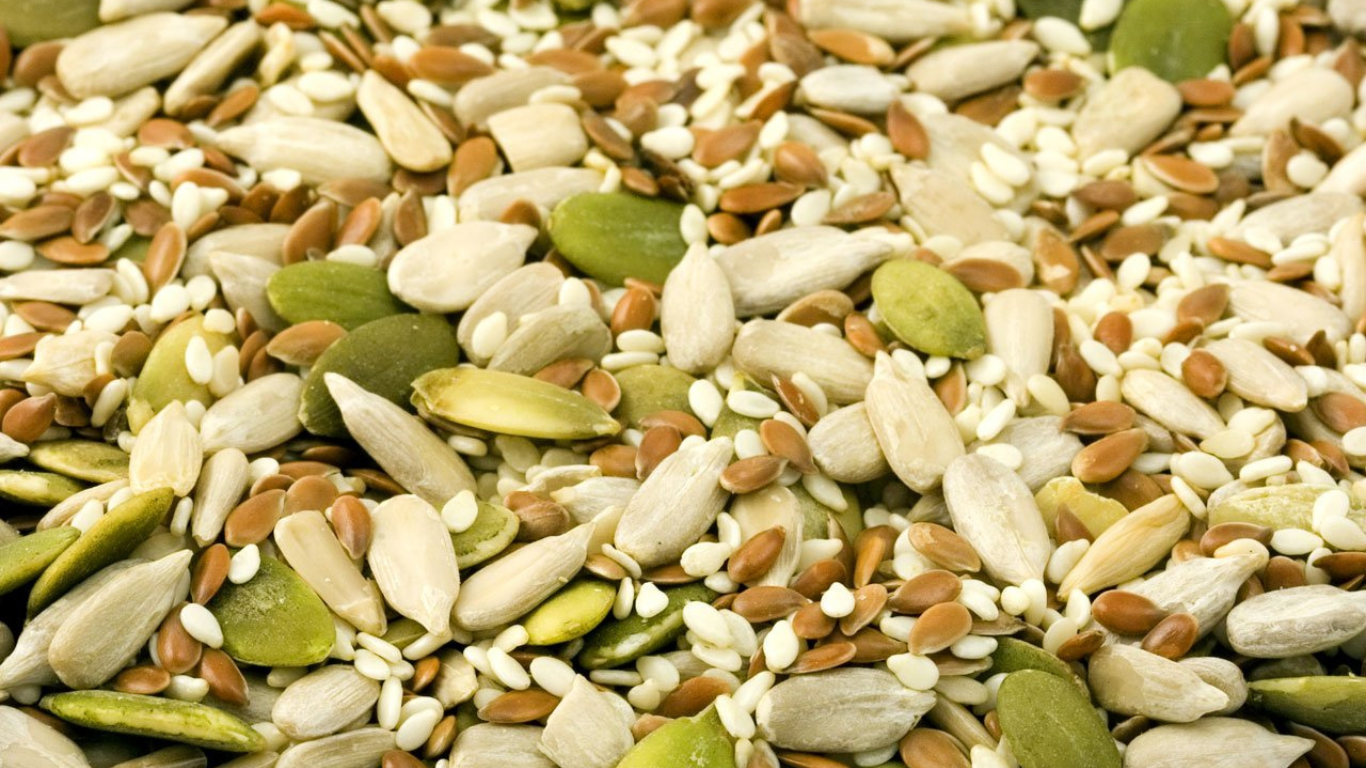THCA Seeds: A Guide to Understanding and Growing

The world of cannabis is vast and ever-evolving, with new discoveries and innovations captivating enthusiasts and growers alike. Among these, “THCA seeds” have emerged as a topic of intrigue, blending the promise of potent cannabinoid content with the allure of cultivation. If you’re here to learn about THCA seeds, you’re likely curious about what they are, how they work, and why they’re gaining traction. This in-depth guide will walk you through everything you need to know—from their origins and benefits to growing tips and legal considerations—all in an informational tone designed to educate and inspire. Whether you’re a seasoned cultivator or a newcomer to the cannabis scene, this article will equip you with the knowledge to explore THCA seeds confidently.
What Are THCA Seeds?
THCA seeds refer to cannabis seeds bred specifically to produce plants with high levels of tetrahydrocannabinolic acid (THCA), a non-psychoactive cannabinoid found in raw cannabis. Unlike THC (tetrahydrocannabinol), the compound famous for its psychoactive effects, THCA doesn’t produce a “high” in its natural state. However, when heated through smoking, vaping, or cooking—a process called decarboxylation—THCA converts into THC, unlocking its intoxicating potential.
These seeds are typically sourced from hemp or marijuana strains, depending on the desired outcome and legal context. Hemp-derived THCA seeds produce plants with less than 0.3% THC when tested pre-harvest, aligning with federal hemp regulations in the U.S. Marijuana-derived THCA seeds, on the other hand, yield plants with higher THC potential post-decarboxylation, often exceeding legal hemp limits. The appeal of THCA seeds lies in their versatility: they cater to those seeking therapeutic benefits without psychoactivity, as well as those interested in potent THC-rich harvests.
The Science Behind THCA: How It Works
To understand THCA seeds, it’s essential to grasp the science of THCA itself. THCA is one of over 100 cannabinoids produced by the cannabis plant. It starts as cannabigerolic acid (CBGA), the “mother cannabinoid,” which enzymes then convert into THCA, CBDA (cannabidiolic acid), or other compounds as the plant matures. In raw cannabis, THCA dominates, often making up the majority of what will become THC once heat is applied.
The decarboxylation process removes a carboxyl group from THCA, transforming it into THC. This chemical shift is why fresh cannabis doesn’t get you high but smoking or baking it does. THCA seeds are bred to maximize this precursor, offering growers control over whether they preserve THCA’s raw properties or convert it into THC. This dual nature makes THCA seeds a fascinating choice for both wellness-focused users and recreational enthusiasts.
Why Choose THCA Seeds?
The growing interest in THCA seeds stems from their unique advantages. For one, THCA is non-psychoactive in its raw form, meaning plants grown from these seeds can be used in ways that don’t alter mental clarity—think juicing fresh leaves or crafting tinctures. Preliminary research suggests THCA may offer anti-inflammatory, neuroprotective, and anti-emetic properties, appealing to those exploring cannabis for health benefits.
For growers, THCA seeds provide flexibility. Hemp-compliant strains allow cultivation within legal boundaries, while high-THCA marijuana strains cater to markets where recreational cannabis is permitted. The seeds also promise potent yields, with some strains boasting THCA levels upwards of 20-30% pre-harvest, translating to significant THC potential post-processing. This combination of versatility, potency, and compliance drives their popularity.
Types of THCA Seeds
THCA seeds come in various forms, each suited to different growing goals. Feminized THCA seeds are engineered to produce only female plants, which are the ones that develop cannabinoid-rich flowers. These are ideal for growers focused on maximizing bud production. Regular THCA seeds, containing both male and female plants, suit breeders looking to create new strains or stabilize genetics.
Autoflowering THCA seeds offer another option, flowering automatically based on age rather than light cycles. These are perfect for beginners or those seeking faster harvests, typically ready in 8-12 weeks. Photoperiod THCA seeds, conversely, require specific light schedules to trigger flowering, offering greater control over growth but demanding more expertise. Strain-specific THCA seeds—like those bred from Sour Diesel or Gorilla Glue—carry unique flavors, effects, and THCA levels, letting growers tailor their crop to preference.
Benefits of Growing THCA Seeds
Growing THCA seeds offers a range of rewards. Customization is a big draw: you can select strains to match your climate, space, or desired cannabinoid profile. Home cultivation ensures freshness and quality, free from commercial additives. For hemp growers, THCA seeds provide a legal pathway to produce high-potency flower that complies with the 0.3% THC threshold when tested raw, yet delivers a classic cannabis experience when decarboxylated.
Therapeutically, raw THCA from these plants may support wellness without psychoactivity, appealing to medical users. For recreational growers in legal regions, the high THCA content promises robust THC yields after processing. Plus, the satisfaction of nurturing a plant from seed to harvest adds a personal touch to the experience, making it both rewarding and educational.
How to Grow THCA Seeds: A Step-by-Step Guide
Cultivating THCA seeds requires care and knowledge, but the process is accessible with the right approach. Here’s a detailed breakdown:
Step 1: Choosing Quality Seeds
Start with reputable seed banks or breeders offering high-THCA genetics. Look for strains with documented cannabinoid profiles and germination guarantees. Popular options include Trilogene Seeds or Greenpoint Seeds for hemp-compliant varieties.
Step 2: Germination
Germinate your seeds by placing them between damp paper towels in a warm, dark place (70-85°F). Within 2-7 days, a small root should emerge. Once sprouted, transfer the seed to a small pot or directly into your growing medium, root down.
Step 3: Vegetative Stage
Plant in nutrient-rich soil or a hydroponic system, providing 18-24 hours of light daily. Use high-nitrogen fertilizers to encourage leaf and stem growth. Maintain temperatures between 70-80°F and humidity around 50-70%. This stage lasts 4-8 weeks, depending on the strain.
Step 4: Flowering Stage
Switch to a 12/12 light cycle (12 hours light, 12 hours dark) for photoperiod strains, or wait for autoflowers to bloom naturally. Boost phosphorus and potassium levels to support bud development. Keep humidity at 40-50% to prevent mold. Flowering takes 6-10 weeks, during which THCA production peaks.
Step 5: Harvesting
Monitor trichomes (resin glands on buds) with a magnifying glass. Harvest when most are milky white, before they turn amber, to maximize THCA content. Cut the plant, trim excess leaves, and hang to dry in a dark, ventilated space at 60-70°F for 7-14 days.
Step 6: Curing
Place dried buds in airtight jars, storing them in a cool, dark place. Open jars daily for the first week to release moisture, then weekly for 2-4 weeks. Proper curing preserves THCA and enhances flavor.
Ideal Growing Conditions for THCA Seeds
Success with THCA seeds hinges on optimal conditions. Indoors, use full-spectrum LED lights to mimic sunlight, maintaining 600-1000 watts per square meter. Outdoors, choose a sunny spot with well-draining soil, ideally in late spring to early summer. Aim for a pH of 6.0-7.0 in soil or 5.5-6.5 in hydroponics. Water consistently but avoid over-saturation—let the top inch of soil dry between sessions. Ventilation is key to prevent pests and mold, especially during flowering when buds are dense.
Legal Status of THCA Seeds
The legality of THCA seeds is a complex topic tied to cannabis regulations. In the U.S., the 2018 Farm Bill legalized hemp (cannabis with less than 0.3% THC), including its seeds, derivatives, and cannabinoids like THCA—provided the plant meets this threshold pre-harvest. This makes hemp-derived THCA seeds federally legal to buy, sell, and grow under a hemp license. However, some states calculate “total THC” (THCA plus THC post-decarboxylation), which can push high-THCA hemp over the limit, rendering it illegal in places like California or Oregon.
Marijuana-derived THCA seeds, bred for higher THC potential, are legal only in states with recreational or medical cannabis programs, like Colorado or Michigan. Globally, laws vary—Canada permits cannabis cultivation with licenses, while many countries ban it outright. Always check local regulations before purchasing or planting THCA seeds.
Where to Buy THCA Seeds
Finding quality THCA seeds is easier than ever with online seed banks. Reputable vendors like Rocket Seeds, Greenpoint Seeds, and Trilogene Seeds offer feminized, high-THCA options with detailed strain info. Prices range from $5-$15 per seed, depending on genetics and quantity—bulk packs often lower the cost. Look for sellers providing lab-tested COAs (Certificates of Analysis) to verify THCA potency and compliance. Physical dispensaries in legal states may also stock seeds, though selection is typically smaller. Ensure shipping aligns with your region’s laws to avoid complications.
Popular THCA Seed Strains
Several strains stand out for their THCA content and growing traits. “Sour Punch” hybrids from Trilogene Seeds deliver robust THCA levels and fruity flavors, ideal for indoor setups. “Hawaiian Haze” from GTR Seeds offers a hemp-compliant option with tropical notes and 20%+ THCA potential. “Gorilla Glue #4” is a marijuana favorite, packing high THCA and sticky buds, perfect for legal recreational grows. Each strain varies in difficulty—beginners might prefer autoflowering versions, while experts tackle photoperiod classics.
Caring for THCA Plants
Maintenance is crucial for healthy THCA plants. Prune lower leaves during vegetative growth to boost airflow and light penetration. Use organic pest controls like neem oil to fend off bugs, and monitor for mold in humid climates. Nutrient schedules should shift from nitrogen-heavy in vegetative stages to phosphorus-potassium blends during flowering. Overfeeding can burn plants, so follow strain-specific guidelines. Post-harvest, store cured buds in glass jars at 60-65°F with 58-62% humidity to preserve THCA potency.
Potential Benefits of THCA
While research is ongoing, THCA shows promise in several areas. Its anti-inflammatory properties may aid conditions like arthritis or chronic pain. Neuroprotective effects suggest potential for brain health, possibly benefiting neurodegenerative diseases. Anti-emetic qualities could help with nausea, a boon for chemotherapy patients. Unlike THC, raw THCA avoids psychoactivity, making it a daytime-friendly option. These benefits remain preliminary, but they fuel interest in THCA seeds for both personal and commercial use.
THCA Seeds vs. THC Seeds: What’s the Difference?
The terms “THCA seeds” and “THC seeds” are often confused, but they’re essentially the same genetically—all cannabis seeds produce THCA in raw plants. The distinction lies in intent and outcome. THCA seeds are marketed for their pre-decarboxylation potential, often hemp-compliant, while “THC seeds” imply a focus on post-decarboxylation THC content, typically from marijuana strains. In practice, any high-THCA seed can become a high-THC plant with heat, blurring the lines. The real difference is legal framing and cultivation goals.
Challenges of Growing THCA Seeds
Growing THCA seeds isn’t without hurdles. Compliance testing can be tricky—high-THCA hemp may fail “total THC” checks in some states, risking crop loss. Environmental stress, like heat waves or poor soil, can stunt cannabinoid production. Beginners may struggle with light schedules or pest management, while dense buds invite mold if airflow lags. Patience is key: the full cycle takes 3-4 months, and rushing harvest or curing can degrade THCA. Preparation and research mitigate these challenges, ensuring a successful grow.
The Future of THCA Seeds
The THCA seed market is poised for growth as cannabis acceptance expands. Breeders are refining genetics to boost THCA yields while meeting legal standards, especially with the 2023 Farm Bill looming, which could reshape hemp rules. Demand for non-psychoactive cannabinoids is rising, positioning THCA seeds as a wellness staple. Meanwhile, recreational markets eye their potency potential. Innovations in autoflowering and feminized strains will likely make cultivation more accessible, cementing THCA seeds as a cornerstone of modern cannabis culture.
Final Thoughts on THCA Seeds
THCA seeds offer a gateway to a dynamic cannabis experience, bridging therapeutic potential with cultivation creativity. Whether you’re drawn to their legal flexibility, high potency, or health prospects, they represent a unique niche in the cannabis world. Growing them requires dedication, but the payoff—fresh, potent flower tailored to your needs—is worth it. As research deepens and laws evolve, THCA seeds will only grow in relevance. Ready to dive in? Start with quality seeds, a solid plan, and a passion for discovery—your THCA journey awaits.



